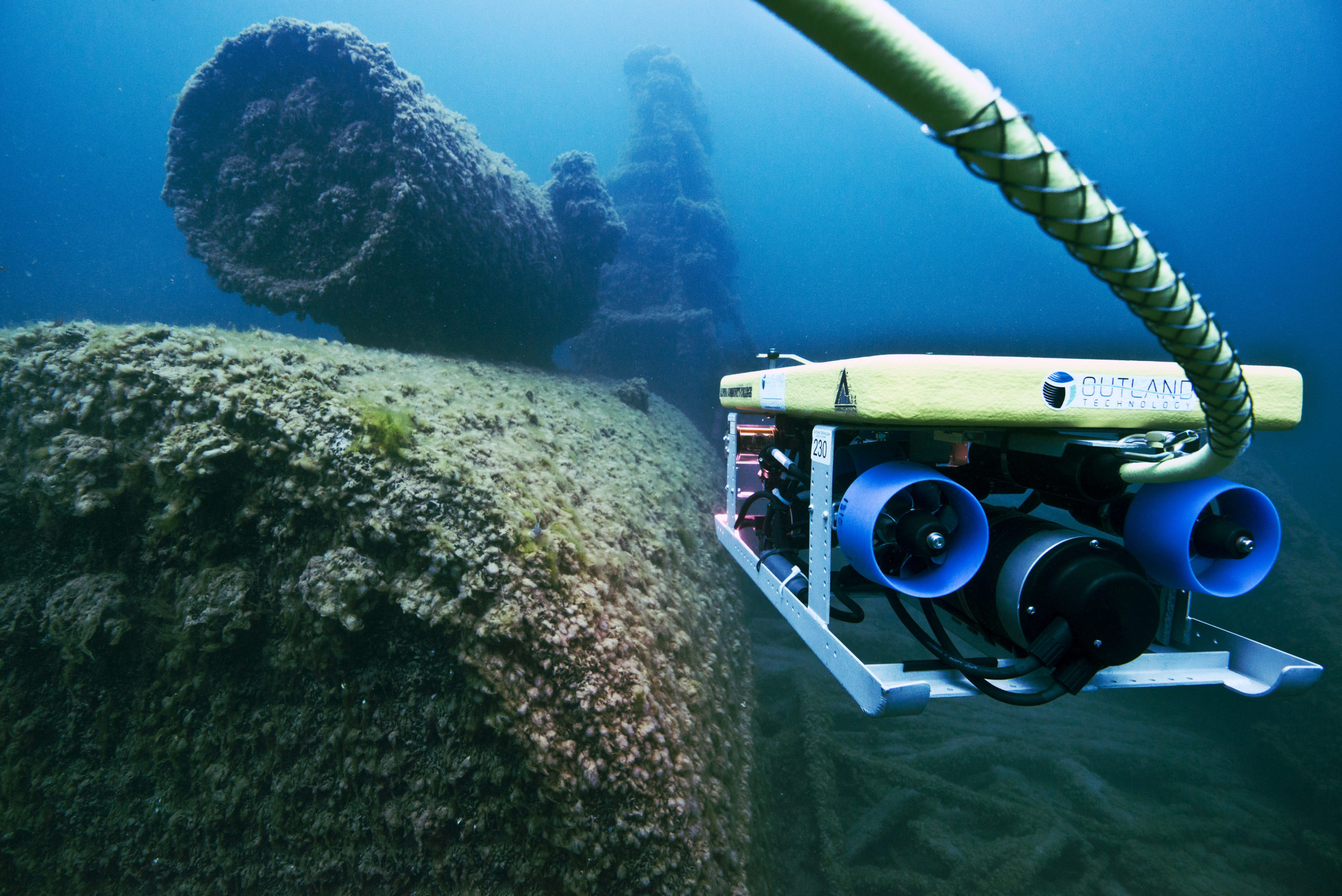
Why We Need to Explore More of the Ocean

A remotely operated vehicle investigating the wooden steam barge, Montana, in what is now Thunder Bay National Marine Sanctuary. Photo Credit: Tane Casserley/NOAA
We have been to the moon and sent robots to Mars, but 80 percent of our world remains unseen, untouched, and unknown. The ocean covers around 71 percent of our planet with an estimated 352 quintillion gallons of water and supports all life on earth, whether directly or indirectly. There are still so many wonders beneath the surface to discover, and thankfully researchers and explorers are doing just that, including in sanctuaries!
Since humans can’t physically tolerate many of the ocean’s most intense conditions, technological innovations make most ocean exploration possible. Underwater Remote Operated Vehicles (ROVs), submersibles, sonar technology, and satellites have all assisted explorers in seeing, investigating, and mapping the ocean floor. But why does it matter that so much of the ocean remains a mystery to us?
The ocean supports all life on our planet and is integral to earth processes. For example, the ocean and life within it are responsible for producing half of all of the world’s oxygen, traps and stores carbon dioxide from our atmosphere, provides food for much of the world, and is a source of ingredients for products used in medicine, like proteins from an ocean seabed algae that was effective in slowing a virus known as Middle East Respiratory Syndrome (MERS). The potential of new vaccines and potential life-saving cures underscores the importance of exploring, conserving and protecting these largely unexplored ecosystems and the species that call it home.
With so much of the ocean left to explore, who knows what we might find that can benefit society? Maybe new sources of sustainable energy, life-saving cures for human health conditions, and information about potential new vaccines lie deep beneath the ocean’s surface in ecosystems and the physical marine environment.
Being able to see, catalog, sample, and map these environments through expeditions is critical to understand these environments before they are lost forever and to identify more potential resources to address threats such as the coronavirus in the future.
